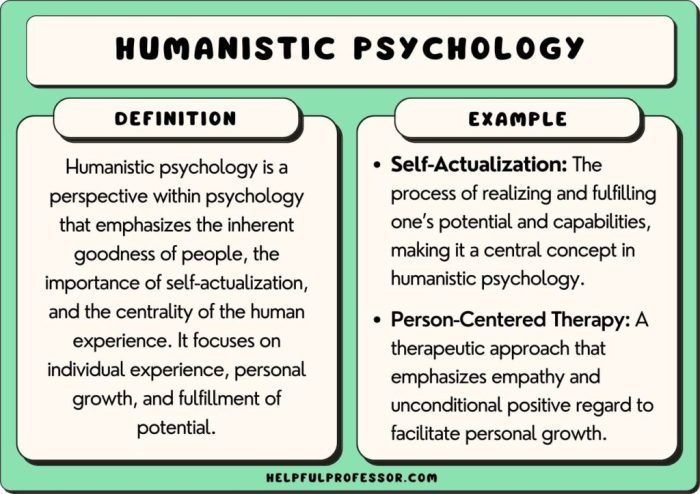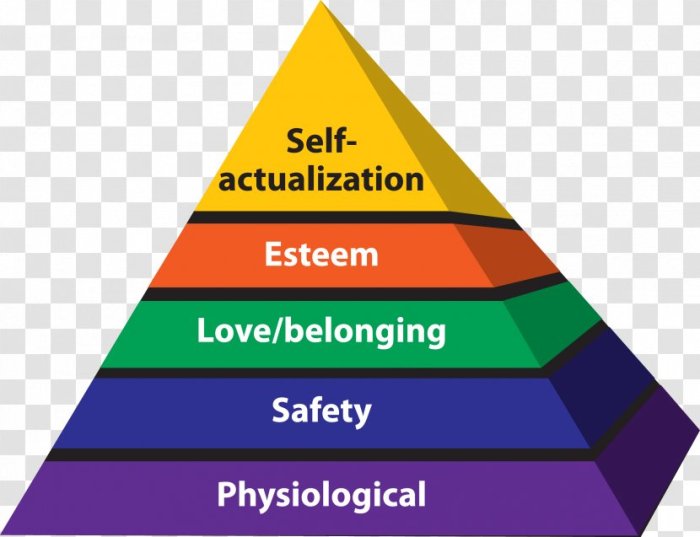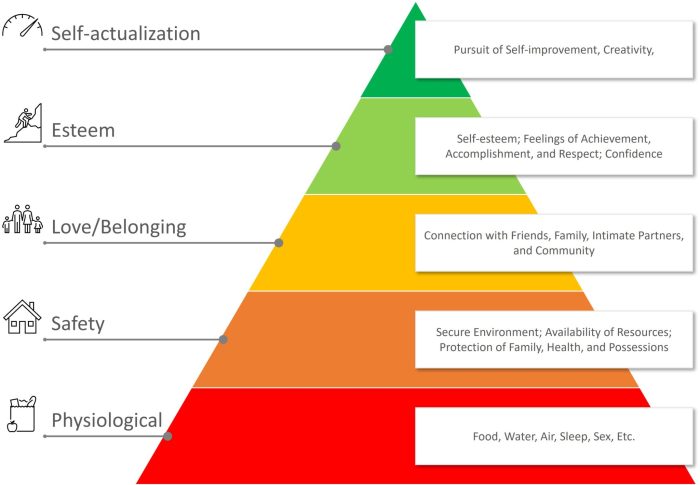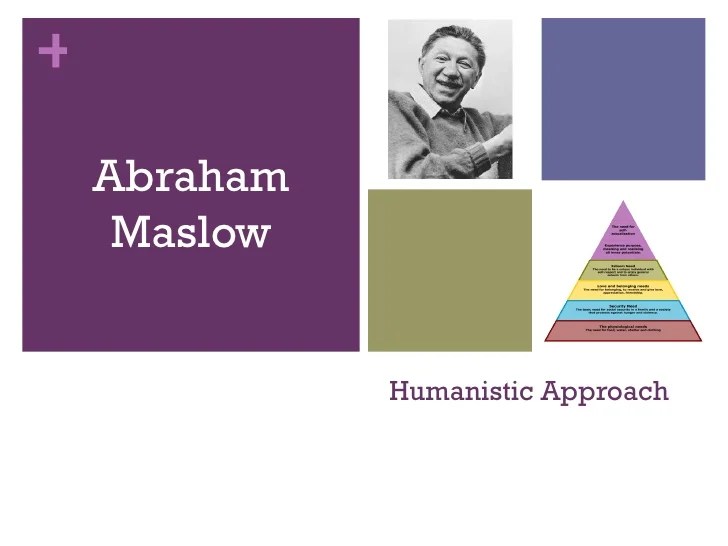The humanistic theory of abraham maslow emphasizes that – The humanistic theory of Abraham Maslow emphasizes the importance of self-actualization, a state of being in which individuals reach their full potential and live a fulfilling life. Maslow’s hierarchy of needs, a foundational concept in his theory, Artikels the sequential stages of human needs, from basic physiological needs to the ultimate need for self-actualization.
Maslow believed that meeting each level of needs is essential for overall well-being and personal growth. When basic needs such as food, shelter, and safety are met, individuals can focus on higher-level needs, such as love, belonging, and self-esteem. Ultimately, self-actualization becomes possible when individuals have the opportunity to develop their full potential and live a life aligned with their values and aspirations.
Maslow’s Theory of Human Motivation

Abraham Maslow’s humanistic theory of motivation proposes that human behavior is driven by a hierarchy of needs, ranging from basic physiological requirements to the pursuit of self-actualization. Understanding this hierarchy is crucial for promoting overall well-being and personal growth.
Maslow’s Hierarchy of Needs, The humanistic theory of abraham maslow emphasizes that
Maslow’s hierarchy of needs consists of five levels, arranged in a pyramid-like structure:
- Physiological needs:These include fundamental biological requirements for survival, such as food, water, sleep, and shelter.
- Safety and security needs:These encompass the need for stability, protection, and freedom from threats, both physically and emotionally.
- Belongingness and love needs:These involve the desire for social connection, intimacy, and a sense of community.
- Esteem needs:These include both self-respect and the respect of others, encompassing feelings of competence, achievement, and status.
- Self-actualization needs:These represent the highest level of motivation, involving the realization of one’s full potential and the pursuit of personal growth and fulfillment.
Maslow believed that these needs must be met in a sequential order, with lower-level needs taking precedence over higher-level needs. However, he also recognized that individuals may regress to lower-level needs if they experience setbacks or disruptions in their lives.
Questions and Answers: The Humanistic Theory Of Abraham Maslow Emphasizes That
What is Maslow’s hierarchy of needs?
Maslow’s hierarchy of needs is a motivational theory that proposes that human needs are arranged in a hierarchical order, from basic physiological needs to higher-level needs for self-actualization.
What is self-actualization?
Self-actualization is a state of being in which individuals reach their full potential and live a fulfilling life, characterized by personal growth, creativity, and a sense of purpose.
What are the criticisms of Maslow’s theory?
Criticisms of Maslow’s theory include its lack of empirical support, its focus on individualistic needs, and its assumption that needs are universal across cultures.


